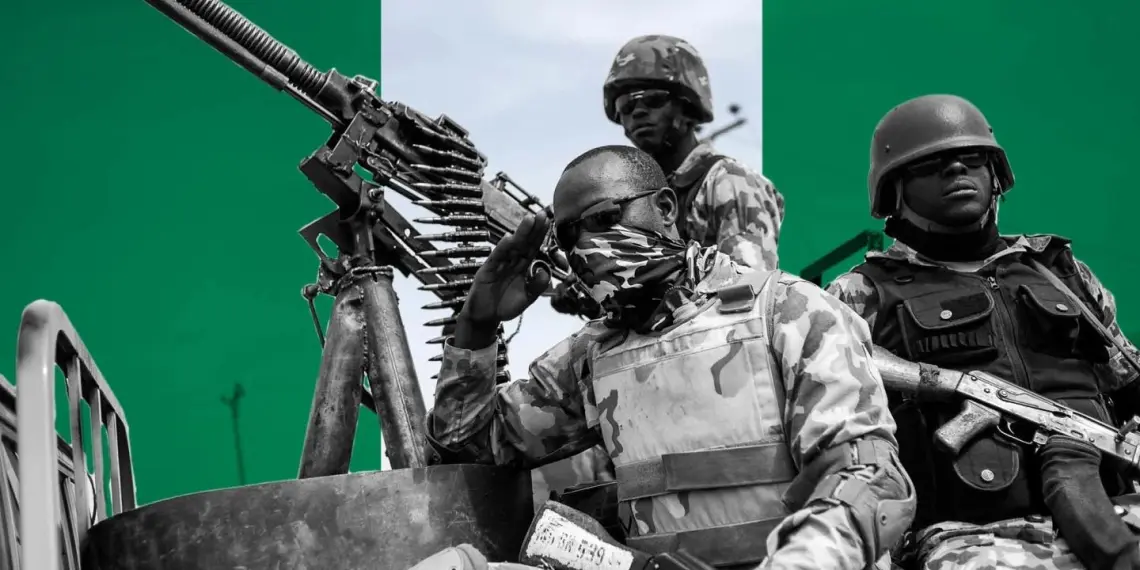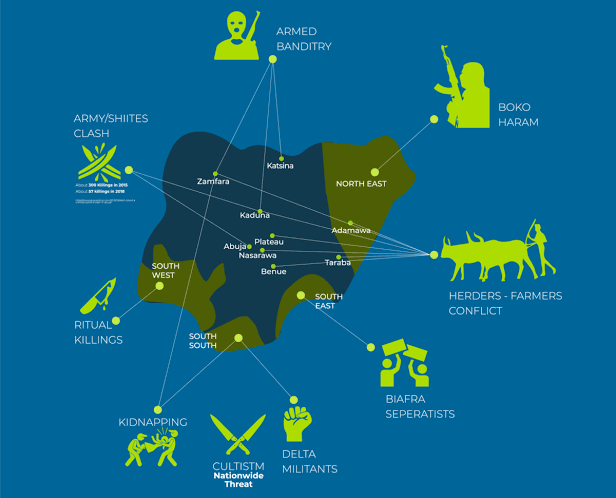The security budget features a 10.2% increase over the previous year, at ₦1.97 trillion::
In all, Nigeria spent ₦8.05 trillion on national security in the last six years;
But despite these annual increments to the security budget, widespread insecurity continues to trail Nigeria.
President Buhari’s campaign rode on the heels of fixing the pervasive insecurity challenge his predecessor left; not only has he missed the mark, but it got much worse. And despite rising budgetary commitments to the security sector since his first term, reality paints the picture of a losing battle.
In truth, the problem is not one of overfunding to the security sector. No, that is not the issue. The challenge is, where do these funds go, especially with ever-present instances of robbery, kidnapping and banditry? Dataphyte pondered this question last year, revealing how Nigeria continually poured trillions of naira into a sector that produced no significant results, amid an impending recession. And true to predictions, Nigeria fell into another recession, the second in five years.
Now, with a 10.2% (₦182.9 billion) increase from last year’s approved security budget, everyone wonders what this ₦1.97 trillion allocation to this under-performing sector will do.
A breakdown of the Nigeria Security Budget in the last six years
Year | Amount (₦) |
2015 | 969 bn |
2016 | 1.06 tn |
2017 | 1.14 tn |
2018 | 1.35 tn |
2019 | 1.76 tn |
2020 | 1.78 tn |
2021 | 1.97 tn |
Disturbing Security Reports in 2020
Recall insecurity heightened in the country last year, as Dataphyte aggregated 1,984 kidnap cases in eleven months. An analysis of the quarterly media reported killings released by SBM Intelligence also speaks to 3,547civilian casualties and a death toll of 698 security personnel in 2020.
The devastating security situation caused many individuals and the Senate to call for the Service Chiefs’ sack which only happened recently following the Service Chiefs’ resignation on January 26, 2021.
However, the House of Representatives members’ effort to get the President to answer questions bordering on the country’s security did not yield any result as the country’s Chief Security Officer never honoured the lawmakers’ summons.
This year, the President had again vowed to end insurgency and other forms of criminality in the country. Many individuals have expressed doubts about the President’s promise noting that he made this same promise in 2015 while contesting for the office. Whatever the case, Nigerians hope that words will be met with actions this time around and the money budgeted to the sector produces results.
“A Presidential vow to end insurgency cannot work without well planned and deliberate strategies” – Expert
For Timothy Avele, a security expert, a presidential vow to end insurgency cannot work without well planned and deliberate strategies. He further stressed that, until there is a political will, strategic terrorist intelligence operations and change of strategies, nothing could be achieved to bring insurgency and insecurity to a standstill.
Again, a Dataphyte analysis echoed this sentiment, emphasising the need for intelligence-driven initiatives/strategies to combat the insecurity bedevilling the country. Further highlighting this suggestion was another report which posited the use of geo-location intelligence. And the apparent benefit was removing the guesswork in policing; efficiently detecting hotspots for criminal activities.
Commenting on the national security budget, Mr Avele noted that it is good but calls for an audit into the past funds that have not produced any significant results.
“Increasing security budgets is reasonable, but that’s not enough without in-depth analysis/audit of past years budget utilisation.”



